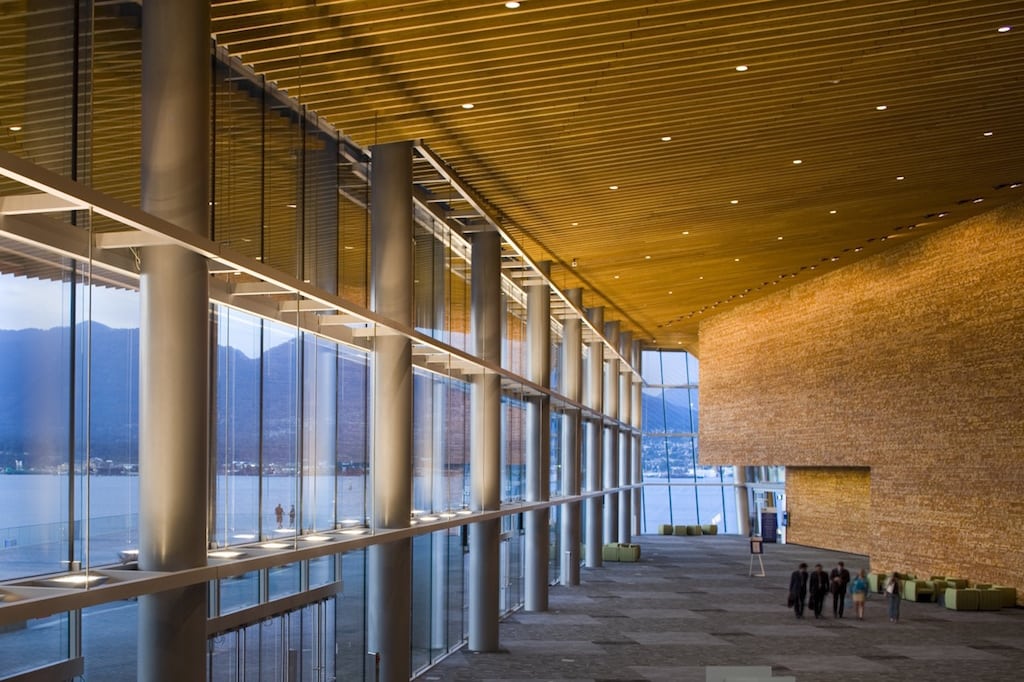Is the Meetings Industry Still the Expert Source for Meetings Intelligence?

Skift Take
A smartly designed convention is as much a branding vehicle for the host organization as it is a place to share knowledge.
Conferences of all sizes are a marketing platform to share an organization's latest messaging, and they provide a portal into the culture of an organization and the people engaged with it.
Nowhere is that more true than with the Professional Convention Management Association (PCMA), which is presently gearing up for its biggest annual event, Convening Leaders, in Vancouver beginning January 10, 2016.
As an association made up of people who organize large conventions, PCMA positions Convening Leaders as basically a showroom for new event technology and new meeting design processes that planners can test drive. If planners see something they like, they can potentially incorporate that into their own events.
“Face-to-face events like meetings and conventions are opportunities to bring an organization's brand to life,” says Kelly Peacy, senior VP of education & events for PCMA. “So Convening Leaders is not just a place for people to get together and exchange information. It’s also about promoting PCMA's brand, which is about education and taking risks in experience design.”
Except, events like South by Southwest (SXSW) in Austin, Web Summit in Dublin, XOXO in Portland, C2 Montreal, and a growing crop of others are now providing the most risk-taking examples of experience design, which are especially attractive to Millennial audiences.
How XOXO used the Slack instant messaging platform, for example, was shared widely by both consumer and meeting trade media. There’s been a distinct shift over the last decade toward consumer media covering these buzzy “innovation events” that have evolved into the new community town hall for the Periscope generation.
Taking that one step further, even counter-culture, very unconference-like events such as Burning Man and Coachella offer insight into conference programming, because they’re integrating more commercial elements and digital communications into their experience design. For better or worse.
So how does PCMA even begin to keep up with that, or integrate those meeting design trends from these high profile events into its own events?
Cultivating Creative Moments
Peacy and her team develop each Convening Leaders conference around a theme. Last year in Chicago, it was “Make No Little Plans,” based on Chicago architect Daniel Burnham’s famous dictum from the early 1900s.
This year in Vancouver, the theme is “Cultivate Creative Moments,” inspired by one of the world’s most impressive convention facilities. The LEED Platinum-rated Vancouver Convention Centre is wrapped in three floor-to-ceiling sheet glass walls, overlooking Stanley Park, Coal Harbour and the Rocky Mountains.
Because attendees are surrounded by so much natural beauty, PCMA organizers contend that people are compelled to stop and become more aware of the moment, and their place within a larger context. That’s why TED Talks moved here as well, based on the idea that those moments of stillness and reflection are a catalyst for creativity and innovation.
Possibly. But it helps when, in TED’s case, you’re beaming in Edward Snowden virtually for a discussion about privacy.
It's not entirely a fair comparison because PCMA, or almost any trade association, doesn’t attract that level of speakers or enjoy the same budget levels. Therefore, the only way that PCMA can create excitement is through programming that defines the future of the meetings and conventions industry.
Except, the C2 Montreals of the world are already demonstrating that in action. So PCMA should define and decipher the how and the why of C2’s experience design expertise at Convening Leaders. One way to do that would be to invite C2’s organizers, the Sid Lee agency, to speak. Or any of the others.
Instead, three out of the four keynoters at Convening Leaders are basically life or life-work coaches who teach people how to be happier and more productive at work. The other makes t-shirts.
That’s not in any way to diminish the expertise of these speakers or the value of their educational offerings, but there is a question about how effectively they’re driving PCMA’s brand promise around next generation meeting design toward the future.
A Learning Platform About Learning
One area where Peacy and her colleagues have triumphed is the shift toward Open Space Learning, where attendees and educators are gathering more in prefunction space than traditional meeting space.
It's similar to the shift toward more social, open and connected spaces in hotels designed to inspire casual on- and offline networking.
Last year at Convening Leaders in McCormick Place Convention Center in Chicago, most of the general educational sessions took place in the open public spaces with just a few partitions separating each session. They were located in four zones themed around Operational Strategy, Meeting & Experience Design, Globalization and Technology.
The feedback has been mostly very positive, except for some significant noise bleed issues that Peacy says will be controlled better in Vancouver.
“It's clear that everyone really loves the energy that Open Space Learning produces, but absolutely there are physical challenges to it,” she says. “So what we've been doing the entire year since the moment we came back from Chicago was researching various ways to manage sound energy. In 2016 we'll be sharing that information for people to use in their own events.”
That research will be available at Convening Leaders in Vancouver in two months, but it would be great to have some of that information available on the website now to start the conversation beforehand.
SXSW, C2 and the rest do a good job of providing a valuable content before their events to build attendee engagement, and equally important, build the brand. SXSW especially engages its audience by crowdsourcing suggestions to create some the event's actual programming via the SXSW PanelPicker platform.
This is one of the biggest growth opportunities for trade associations to expand audience reach, but it requires a considerable amount of time and resources to do well.
“We've been talking about that for a couple of years but what we're finding is our presenters are so busy they're tough to engage ahead of time,” explains Peacy. “Once they're there, it’s a different story. We do that on a small scale through our Catalyst platform and social media. But a large scale strategy to crowdsource conversation ahead of time about something we're still working on, and getting our participants to understand the value of that, is a challenge.”
We suggested maybe starting out small with a pre-convention conversation controlled by PCMA that engages only PCMA people and major partners, such as the onsite Freeman Convention Services team, and the attendee audience. PCMA's Convene media group could then curate the conversation on the Convening Leaders site, the brand.com site, and its own site.
That is exactly a scenario where PCMA’s brand message and experience design could better align to deliver a new level in convention planning leadership that integrates more digital/social.
“Ultimately that's the goal,” says Peacy. “We want everyone to be excited and fully engaged and ramped up to participate, so they can hit the ground running.”
Subscribe to the Skift MeetingsIQ newsletter for marketing, strategy and tech trends in the meetings and events sector.




